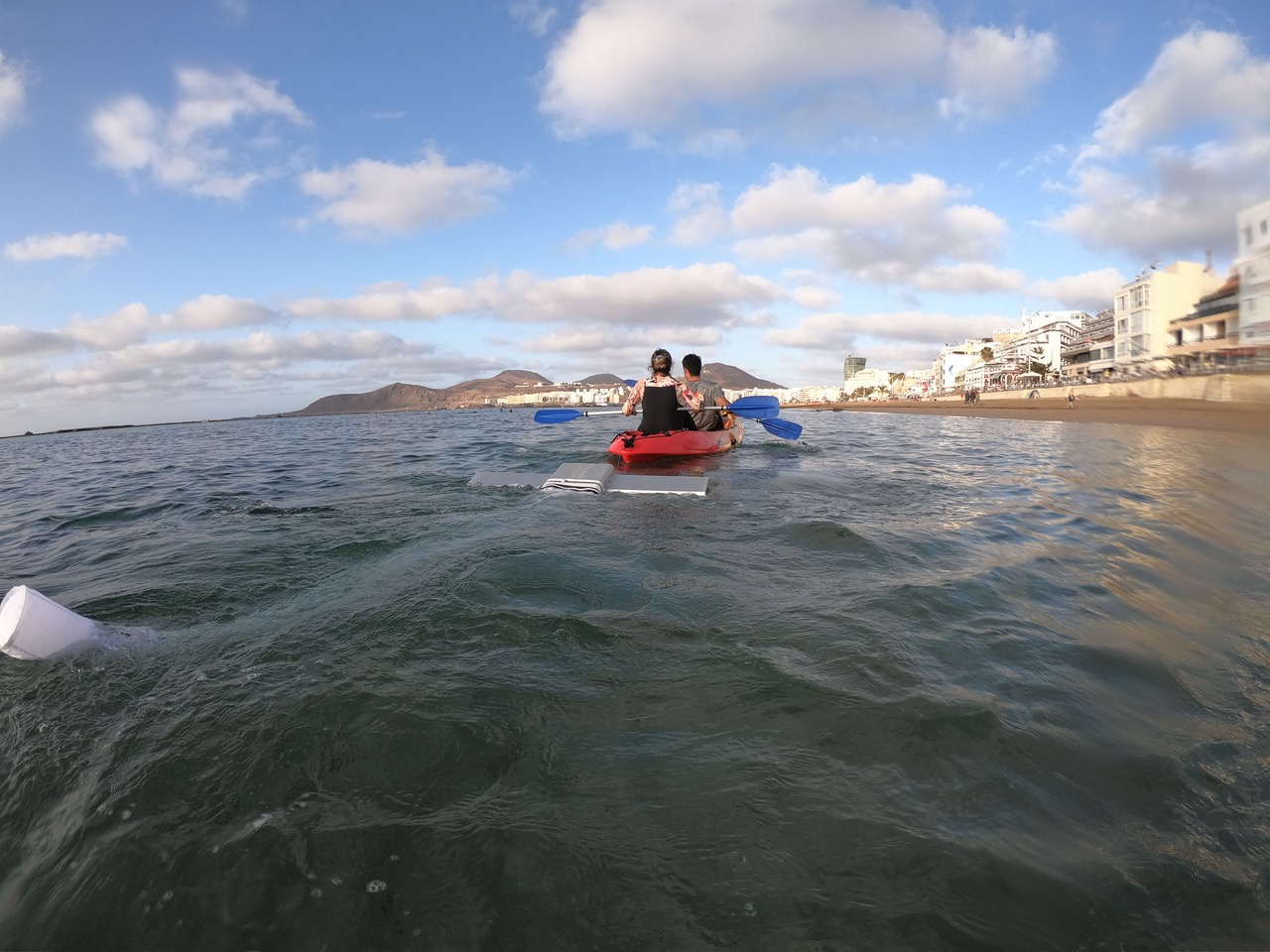The project 'Investiga en Las Canteras' launched in 2020 between the Department of Ciudad de Mar of the City Council of Las Palmas de Gran Canaria and the University of Las Palmas de Gran Canaria and its Scientific and Technological Park, has enabled the implementation of 14 research projects on the state of sustainability and management of the Bay of El Confital and its two beaches: Las Canteras and El Confital.
The Councilor of Ciudad de Mar of Las Palmas de Gran Canaria, José Eduardo Ramírez; the Vice Rector of Research and Transfer of the ULPGC, Marisol Izquierdo and the doctor of the University and coordinator of the project 'Investiga Las Canteras', Emma Pérez-Chacón, presented last Friday, March 17, the results of the project, which will continue in 2023, and in which different research groups of the University of Gran Canaria have participated in a cross-cutting and coordinated manner.
Among them is EOMAR, which has worked in a coordinated and interrelated way to cross-check data on different variables that directly affect this coastal area of the capital of Gran Canaria and has been conducting a study for several years on the beach of Las Canteras to assess microplastic pollution, as explained by one of its researchers, Alicia Herrera Ulibarri in this video.
In the presentation held in the Stone Room of the Rectorate of the ULPGC was Dr. Rodrigo Almeda, who presented the results obtained by the EOMAR group of the University Institute ECOAQUA, on the study of microplastic leachates, that is, the chemicals that plastics release into the water and that can cause negative impacts on plankton, key organisms in the ecosystem.
In this study they found that microplastic leachates from Las Canteras beach in the capital of Gran Canaria had little impact on the survival and growth of planktonic organisms. However, leachates from tobacco butts had a very high impact, causing up to 100% mortality of planktonic organisms, malformations or reduced growth.
Almeda explained in his speech that this work wants to send the message that "we know that microplastics are a problem", but there are "other wastes such as tobacco butts that are also plastics, bioplastics, which can cause even a higher impact on the ecosystem", so he encouraged the scientific community to "promote the idea that tobacco butts are plastic, which should not be thrown into the sea". A "small gesture" that, he understands, can contribute "to maintain the ecosystem of Las Canteras that we all appreciate".


